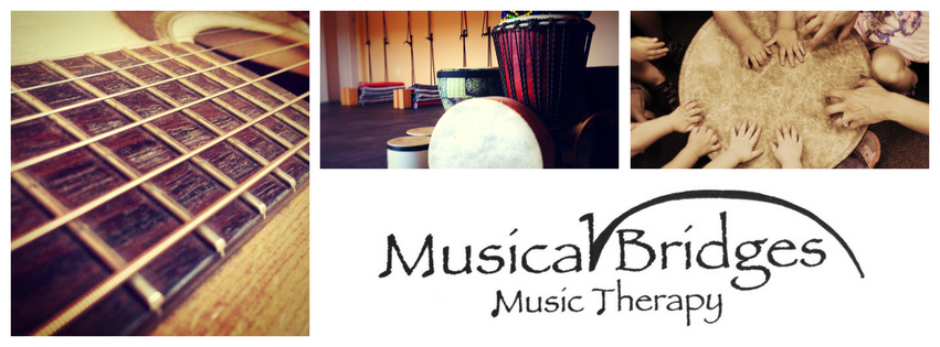The Definition
“Music Therapy is the clinical and evidence-based use of music interventions to accomplish individualized goals within a therapeutic relationship by a credentialed professional who has completed an approved music therapy program”– American Music Therapy Association, 2010
In Layman’s Terms
Music therapy is provided by a board certified music therapist who uses music in a creative way to aid in the achievement of emotional, social, cognitive, and physical needs of people of all ages. The beauty is that you DO NOT have to be a musician to reap the benefits! Music therapists tailor the musical interventions to be “non-musician proof” to create a non-invasive and engaging therapeutic experience.
Music therapists may hold a Bachelors, Masters or Ph.D. Board certification is required after completion of a required 6 month internship at a clinical site approved by the American Music Therapy Association.
What Common Goals Do Music Therapists Address?
- Promote Wellness
- Manage Stress
- Alleviate Pain
- Express Feelings
- Enhance Memory
- Improve Communication
- Promote Physical Rehabilitation
- Increase Socialization
Where Do Music Therapists Work?
- Hospitals (outpatient and inpatient, patients of all ages)
- Schools
- Rehabilitation Centers (physical and neurological)
- Addiction Treatment Centers
- Forensic Settings
- Skilled Nursing Facilities (assisted living, Alzheimer’s/dementia)
- Hospice and Palliative Care
Research
The American Music Therapy Association provides two Journals which contribute the bulk of the music therapy literature: Music Therapy Perspectives and the Journal of Music Therapy. Visit the AMTA website to access amazing research findings.
————————-
For additional reading: 5 Things You Need to Know About Music Therapy
